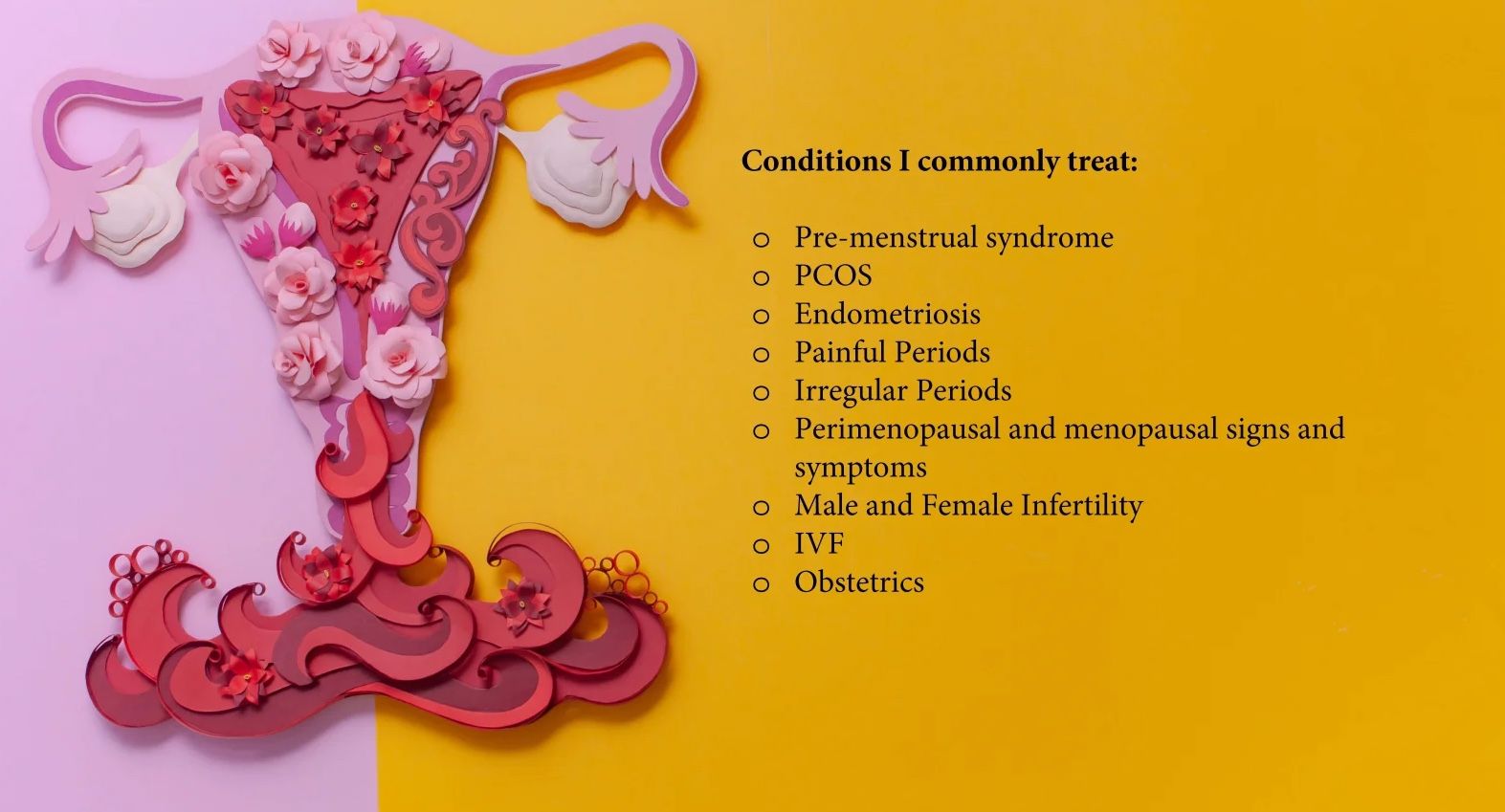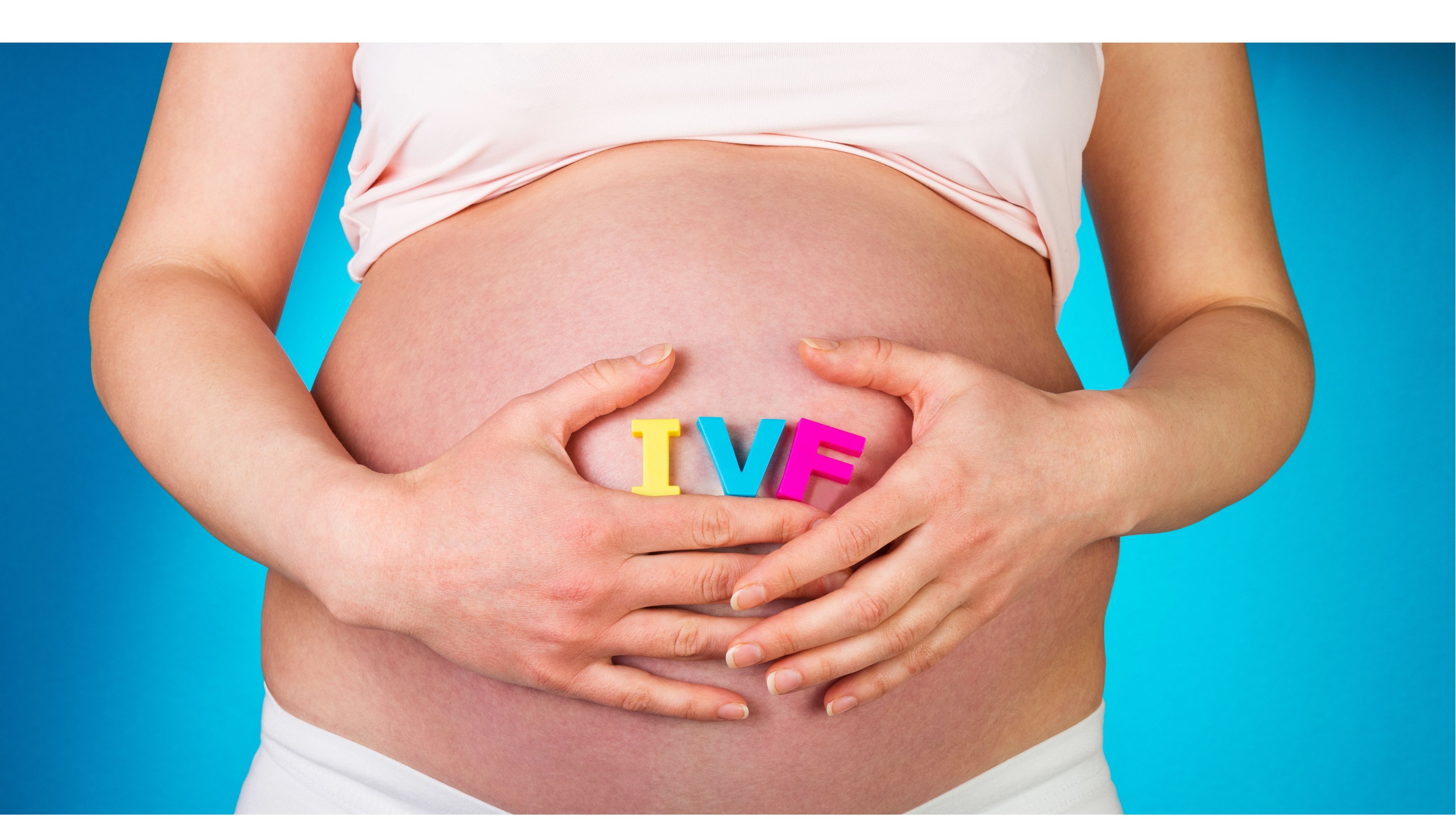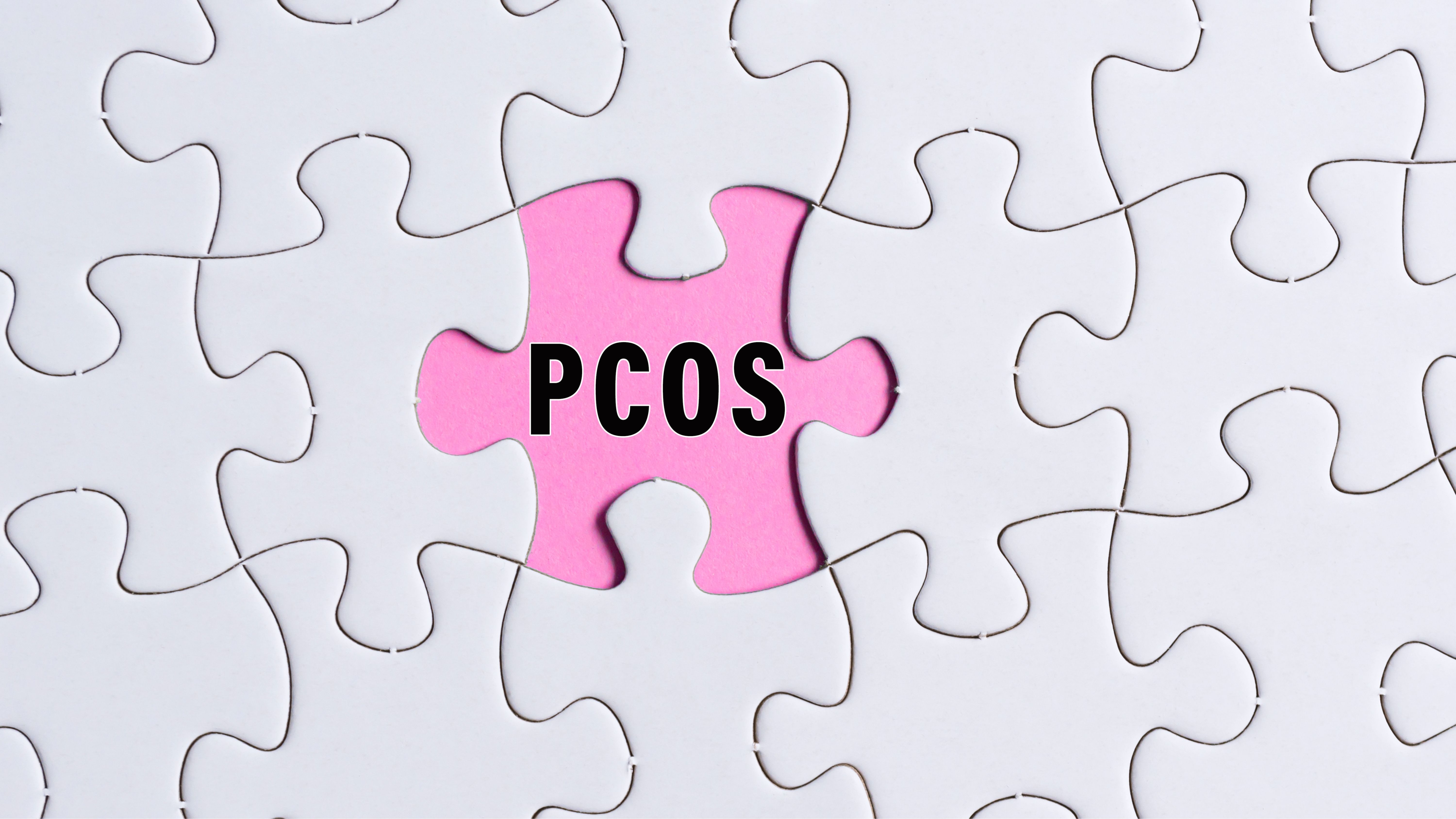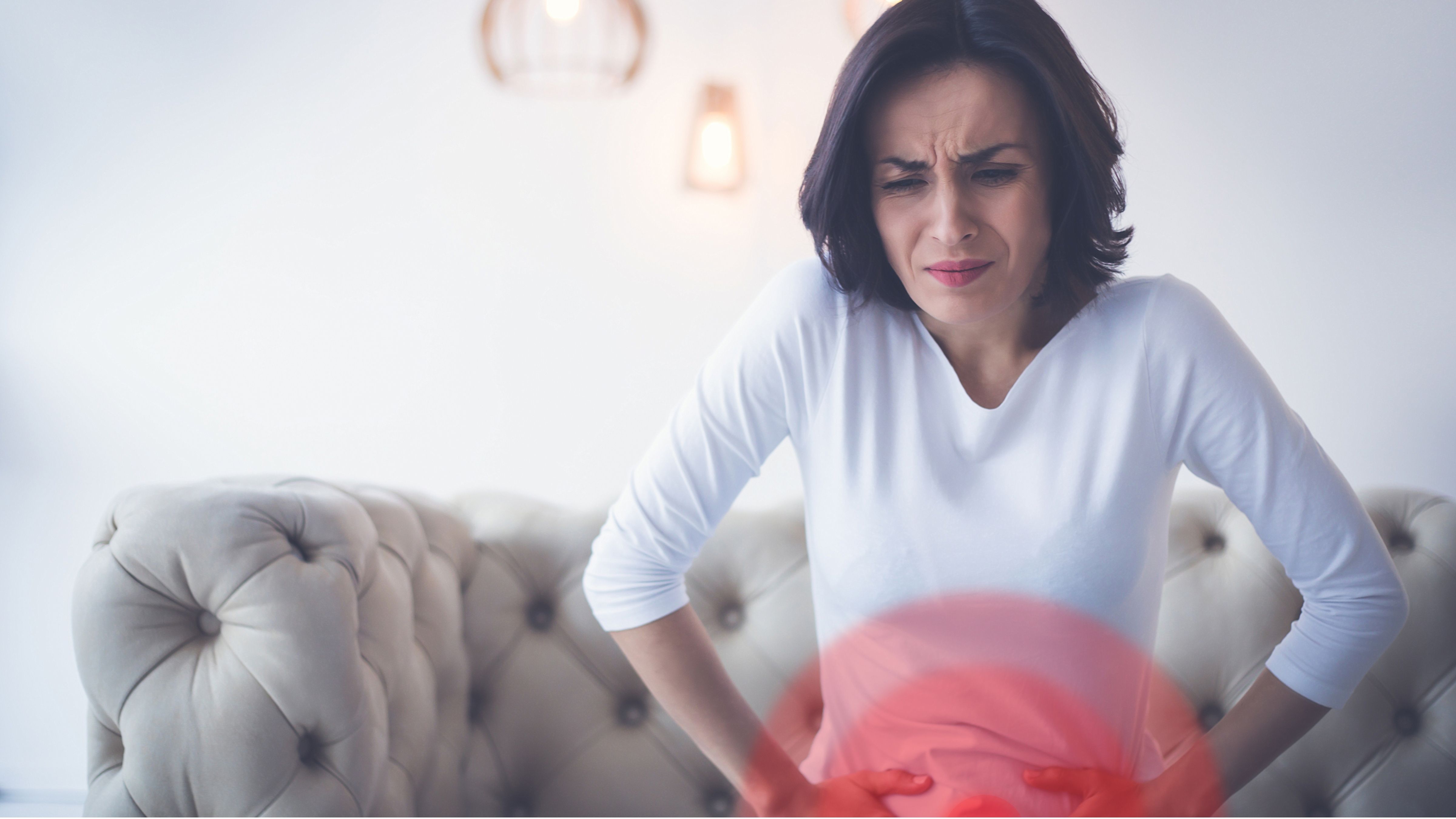Fertility and
Gynaecology
Gynaecology
Women's Health


FERTILITY
Acupuncture may help improve fertility in both men and women.
Approximately 3.5 million people in the UK face difficulty when trying to conceive - a challenge that has become increasingly common as more and more individuals seek fertility assistance. To this end, acupuncture is gaining popularity among those preparing for pregnancy or undergoing Western treatments such as IVF, IUI and ICSI.
Acupuncture may also help reduce stress and anxiety, which are often associated with fertility problems. Stress can interfere with hormonal balance and reduce blood flow to the reproductive organs, making it more difficult to conceive. A study published in the Journal of Alternative and Complementary Medicine found that acupuncture was effective in reducing symptoms of anxiety in women undergoing IVF treatment.
Acupuncture promotes the flow of Qi (pronounced "chee"), or vital energy, through the body's meridians or channels. An acupuncturist can help regulate the body's hormonal balance, reduce inflammation, and improve blood flow to the reproductive organs by inserting fine needles into specific points on the body,
Research conducted on the efficacy of acupuncture reveals promising results supporting its use; fact sheets and further information relating to male and female infertility are available online at www.aac-org.uk and www.acupuncture.org.uk
Acupuncture is a safe, natural and effective way for women to manage their physical symptoms and support the foundations for an encouraging pregnancy - particularly during times of uncertainty. This is to help create the best conditions possible for successful pregnancies, especially in cases where there have been a number of miscarriages. While there are many possibilities behind why a miscarriage might occur - such as embryos not being genetically viable – many other factors can also play into this heartbreaking event, including autoimmune issues or hormone imbalances.
I support couples with complex health histories and works with fertility clinics and immunologists to help unravel patterns affecting fertility goals. My patients frequently call me a "fertility detective" as I investigate all aspects of health to create positive outcomes.
I work with patients for a minimum of 4 months for natural fertility support.

IVF / IUI SUPPORT
The same principles applied to an IVF or IUI cycle are used during your cycle. Schedule a free telephone consultation to find out when the best time is to come in for support. Acupuncture has been shown to increase blood flow to the uterus and ovaries, improve ovarian function and egg quality, reduce stress, and balance hormones.
I hope that by supporting your body during this process, we can increase your chances of success whether you choose to conceive naturally or with assisted reproductive technologies (ART).

Polycystic Ovary Syndrome (PCOS)
Polycystic Ovary Syndrome (PCOS) is a hormonal disorder common among women of reproductive age. It's characterised by irregular menstrual cycles, excess androgen levels (male hormones), and polycystic ovaries (ovaries containing numerous small cysts). The exact cause of PCOS is not fully understood but is believed to involve a combination of genetic and environmental factors.
Symptoms of PCOS can vary widely among individuals but commonly include:
- Irregular periods or no periods at all.
- Excess hair growth on the face, chest, back, or buttocks (hirsutism).
- Acne and oily skin.
- Weight gain or difficulty losing weight.
- Thinning hair or hair loss from the scalp (alopecia).
- Difficulty getting pregnant (due to irregular ovulation).
PCOS is also associated with an increased risk of developing other health problems, including insulin resistance, type 2 diabetes, high cholesterol, high blood pressure, and sleep apnea.
Treatment for PCOS aims to manage symptoms and reduce the risk of complications. This typically involves a combination of lifestyle changes, such as diet and exercise, medications to regulate menstrual cycles and hormone levels, and, in some cases, assisted reproductive technologies for fertility issues.
The effects of acupuncture on PCOS are due to its ability to reduce inflammation, modulate hormones, regulate the menstrual cycle, and improve endocrine function. It may also affect nerve pathways that control various reproductive organs, which could lead to improved fertility outcomes. Acupuncture can also reduce stress levels, which can help with managing PCOS symptoms such as anxiety and depression. Overall, there is encouraging evidence that acupuncture is a safe and effective treatment for many of the symptoms associated with PCOS:
Menstrual Regulation: Acupuncture may help regulate menstrual cycles in women with PCOS by balancing hormone levels and improving blood flow to the reproductive organs.
Reduced Androgen Levels: Some studies suggest that acupuncture may help lower androgen levels in women with PCOS, potentially reducing symptoms like hirsutism and acne.
Improved Fertility: Acupuncture may improve fertility in women with PCOS by promoting ovulation and enhancing the chances of successful conception.
Stress Reduction: PCOS can be associated with stress and anxiety, which can exacerbate symptoms. Acupuncture may help reduce stress levels and promote relaxation, potentially improving overall well-being.
Metabolic Health: Acupuncture may help improve insulin sensitivity and regulate blood sugar levels in women with PCOS, which could reduce the risk of developing insulin resistance and type 2 diabetes.

ENDOMETRIOSIS
Endometriosis is a chronic condition where tissue similar to the lining of the uterus, called endometrium, grows outside the uterus. This tissue can be found on the ovaries, fallopian tubes, outer surface of the uterus, and other organs within the pelvis. Endometriosis can cause various symptoms, including:
Pelvic Pain: This is the most common symptom and can range from mild to severe. It often correlates with the menstrual cycle but can be present anytime.
Menstrual Irregularities: Women with endometriosis may experience heavy periods, irregular periods, or bleeding between periods.
Painful Intercourse: Pain during or after sexual intercourse is another common symptom.
Pain with Bowel Movements or Urination: Endometrial tissue can also affect the intestines or bladder, causing pain during bowel movements or urination, especially during menstruation.
Infertility: Endometriosis can also lead to difficulty getting pregnant.
Fatigue: Chronic pain and other symptoms of endometriosis can result in fatigue.
Although the exact mechanism of how acupuncture works for pain relief is not fully understood, some theories suggest that it may stimulate the release of endorphins, which are natural pain-relieving chemicals in the body, or modulate how pain signals are transmitted to the nervous system.
Acupuncture can offer several benefits for pain relief and reducing inflammation in people with Endometriosis:
Pain Management: Acupuncture can help reduce pelvic pain associated with endometriosis by stimulating nerves and muscles, promoting blood flow, and releasing endorphins.
Menstrual Symptom Relief: Acupuncture may also help alleviate symptoms such as heavy bleeding and menstrual cramps associated with endometriosis.
Stress Reduction: Endometriosis can be emotionally and physically taxing, and acupuncture may help reduce stress and improve overall well-being, which can indirectly alleviate pain.
Improved Quality of Life: By reducing pain and other symptoms, acupuncture may improve the quality of life for individuals living with endometriosis. This allows them to manage their condition better and engage in daily activities more comfortably.

ADENOMYOSIS
Adenomyosis is a medical condition characterised by endometrial tissue, which usually lines the inside of the uterus, growing into the muscular wall of the uterus (myometrium). This can lead to symptoms such as heavy menstrual bleeding, prolonged menstrual periods, severe menstrual cramps, pelvic pain, and discomfort during intercourse. Adenomyosis can also cause bloating, heaviness or fullness in the abdomen, and as a result, diagnosis can often be challenging for sufferers.
Adenomyosis can occur in women of any age but is most commonly diagnosed in women in their 30s and 40s, who may have had children, and is often mistaken for fibroids. Currently, the exact cause of adenomyosis is not fully understood, but several factors may contribute to its development, including hormonal imbalances, inflammation, and previous uterine surgery.
Western Medical treatments for adenomyosis aim to alleviate symptoms and may include medications such as nonsteroidal anti-inflammatory drugs (NSAIDs), hormonal therapies (like oral contraceptives or hormone-releasing intrauterine devices), or in severe cases, surgical options like an endometrial ablation where the uterine lining is removed or a hysterectomy (removal of the uterus).
Traditional Chinese Medicine and Acupuncture can help provide an alternative form of pain management for this debilitating condition and provide significant relief from symptoms.
Benefits include:
Pain relief: Acupuncture has been shown to stimulate the release of endorphins, the body's natural painkillers, which may help alleviate menstrual cramps and pelvic pain associated with adenomyosis.
Hormonal balance: Acupuncture is believed to modulate hormone levels, potentially helping to regulate menstrual cycles and reduce heavy bleeding associated with adenomyosis.
Stress reduction: Adenomyosis symptoms can be exacerbated by stress, and acupuncture promotes relaxation and reduces stress levels, which can help to alleviate symptoms.
Improved blood circulation: Acupuncture may improve blood flow to the uterus and pelvic region, which could help reduce inflammation and alleviate symptoms like pelvic pain and discomfort.
